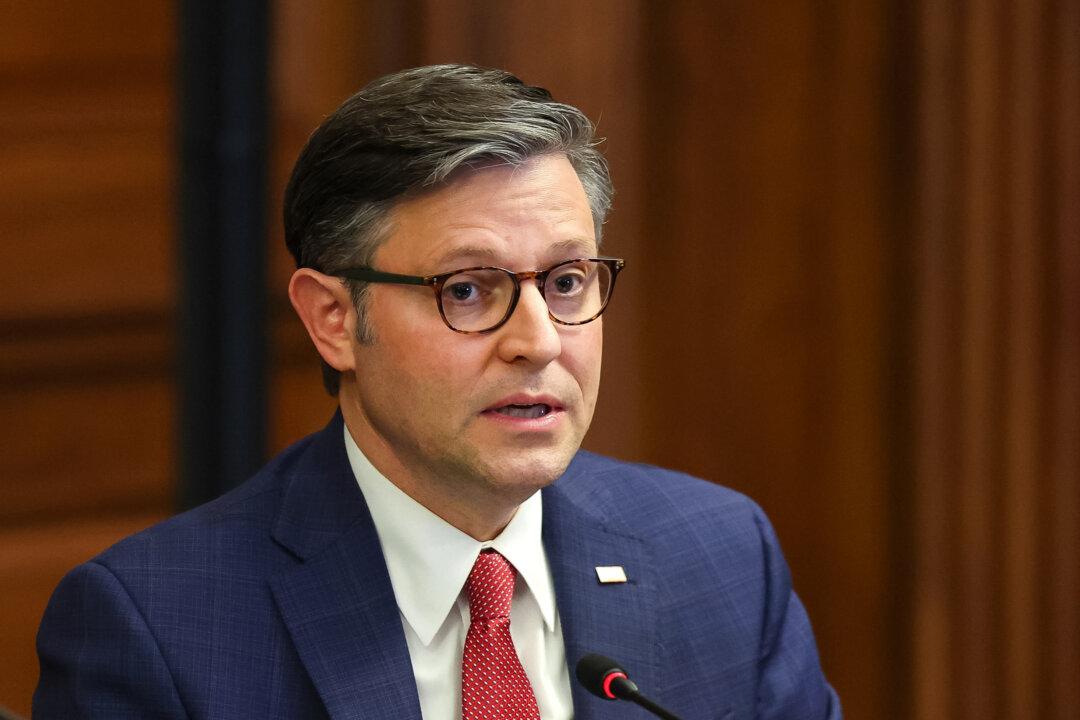House Speaker Mike Johnson (R-La.) said he’s opposed to a Democrat-led procedural maneuver called a discharge petition that would force a floor vote in the House on a $95 billion emergency defense spending bill that includes aid for Ukraine.
“I certainly oppose it, and I hope that it would not be considered,” Mr. Johnson told Politico on Tuesday, referring to the discharge petition that every House Democrat has reportedly signed onto and that some Republicans may be persuaded to join.





